Tehran inks pilgrimage deal with Damascus, welcomes UAE-Syria normalization
Tehran and Damascus have signed an agreement to resume dispatching pilgrims to Syria, as Damascus has renewed presence in the region, with regional Arab counties normalizing their relations with Syria.
The agreement was inked by Head of Iran’s Hajj and Pilgrimage Organization Alireza Rashidian and Syria’s Tourism Minister Mohammad Rami Radwan Martini during the former’s visit to Syria.
“The issue of health, observance of health protocols, and safety of pilgrims is very important in re-establishing these trips,” Rashidian said after the meeting on Thursday.
He added, “The reopening of this pilgrimage route will bring joy to Iranian pilgrims.”
In recent days, Iran has also welcomed the reestablishment of relations between Syria and other Arab countries of the region, saying such moves will benefit both sides.
“Syria has always been one of the most important and most influential countries in the Arab world and the region, and Syria's renewed presence in the region will lead to further growth and dynamism in this region,” Iranian Foreign Ministry spokesman Saeed Khatibzadeh said on Thursday.
In recent months, there has been a race among Arab countries to mend their ties with the Syrian government, ten years after the beginning of a conflict in Syria, through which key Arab countries tried to overthrow Syrian President Bashar al-Assad.
Emiratis to build solar power station in Syria
Also on Thursday, Syria signed a contract with a group of Emirati companies to build a solar power station in a Damascus suburb.
According to Syrian state media, the solar power station will be constructed in the eastern Damascus suburb of Widyan al-Rabie.
The project would take two years to finish and it will produce 300 megawatts at peak rates.
Last month, Syria’s electricity ministry struck a $115 million deal with an Iranian company to rehabilitate a power station in the central Syrian province of Hama.
On Tuesday, the United Arab Emirates’ Foreign Minister Abdullah bin Zayed Al Nahyan traveled to Damascus for the first time after a decade, where he met top Syrian officials, including President Assad.
The new approach adopted by the UAE, which has proven to be much quicker than other Arab countries in making considerable foreign policy shifts to secure its interests, was welcomed by the Syrian president as “realistic and correct”.
At the same time, the move was dismissed by the US, which said it “will not express any support for efforts to normalize” relations with Assad.
The change of approach toward the Damascus government began in the aftermath of the United States’ hasty and disastrous withdrawal from Afghanistan, where Washington left its allies, including Ashraf Ghani's government, alone against the Taliban militant group.
US convoy denied entry into Qamishli city
Meanwhile, the Syrian Army prevented a convoy of American forces from entering Qamishli city in northeast Syria, local sources said.
Five armored vehicles carrying US occupation forces attempted to enter Qamishli city through al-Wafaa roundabout, local sources told the Syrian official news agency SANA.
But they were intercepted by members of the Syrian Arab Army at Rashou checkpoint, located in the southwestern side of the city, forcing them to return to where they had come from.
Citizens and locals of Hasaka countryside, supported by the army, have repeatedly repelled a number of US occupation convoys while trying to move in nearby regions.
Syria has been gripped by foreign-backed militancy since 2011.
In recent years, the US has been maintaining an illegal military presence on Syrian soil, collaborating with militants against Syria’s legitimate government, stealing the country’s crude oil resources, bombing the positions of the Syrian army, and anti-terror popular forces, all the while imposing crippling sanctions on Damascus.
Some regional countries, including Saudi Arabia and the UAE, have also provided the militants with arms and financial support to overthrow the Syrian government.
Hundreds of thousands of people have been killed and millions more displaced since the beginning of the conflict in Syria.
'Next to impossible' to rescue patients from Gaza's Kamal Adwan Hospital: Director
VIDEO | Vietnam current prosperity
Report blames gasoil exports for shortage at Iranian power plants
VIDEO | Hind Rajab Foundation names Israeli war criminals vacationing after Gaza genocide
VIDEO | Australians rally for Gaza ahead of Christmas festivities
VIDEO | Attacks on Sana'a
Iran reports further drop in annual inflation rate in December
Israel indicts two settlers over suspected spying for Hezbollah


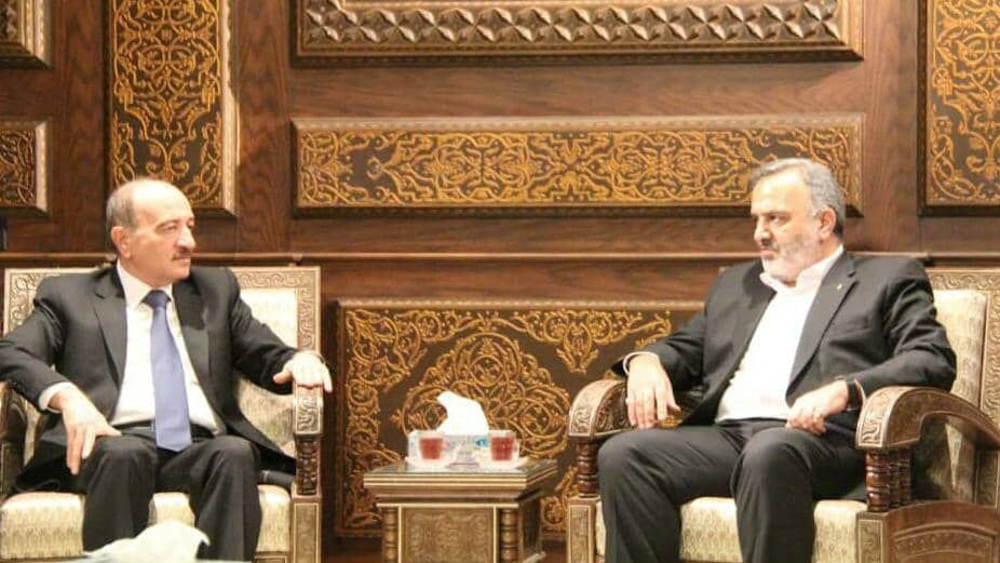
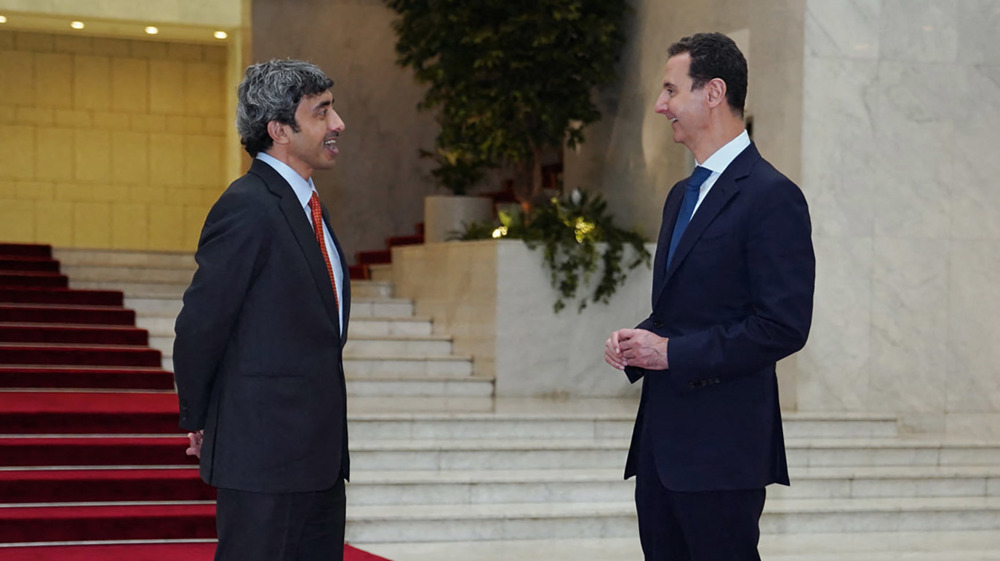
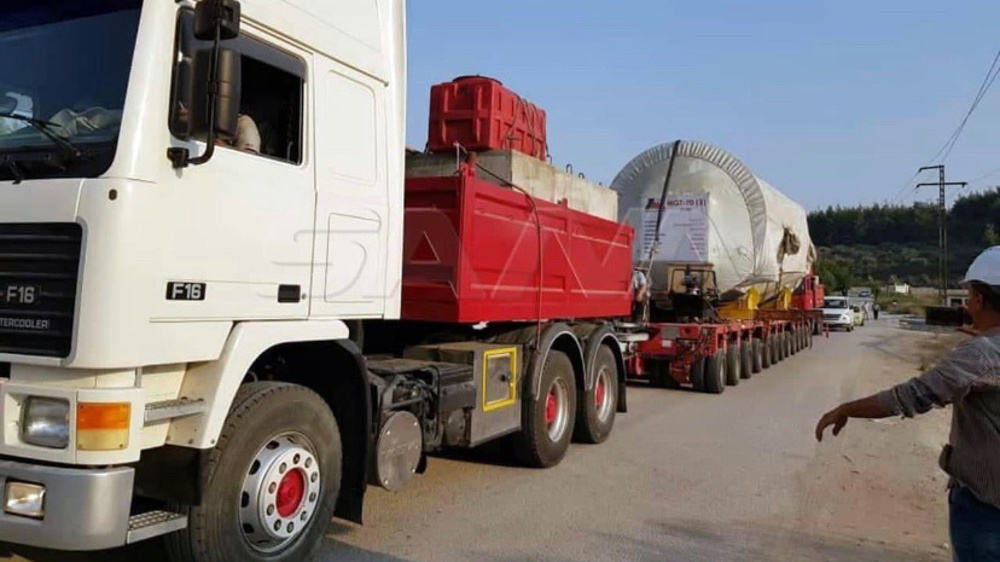






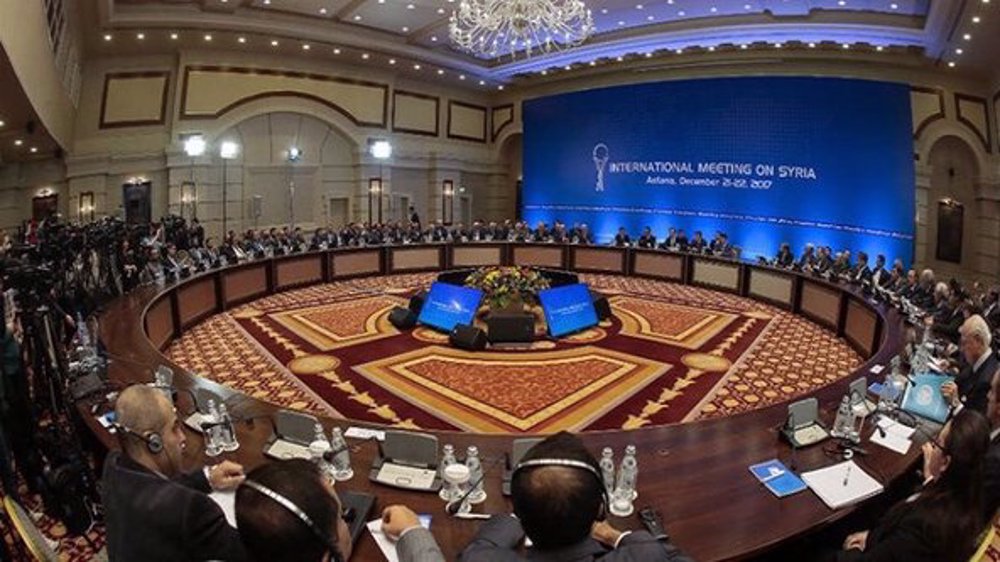
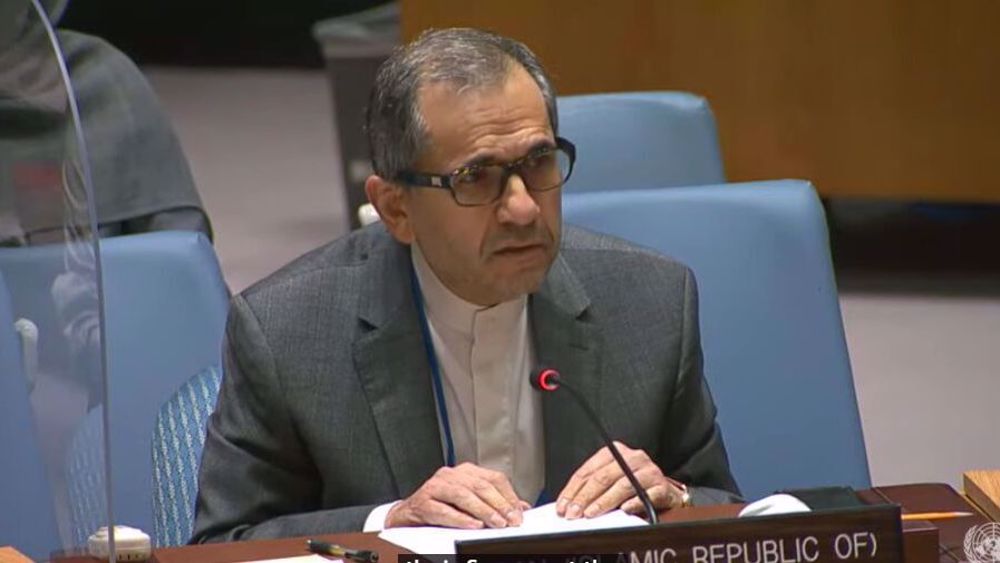
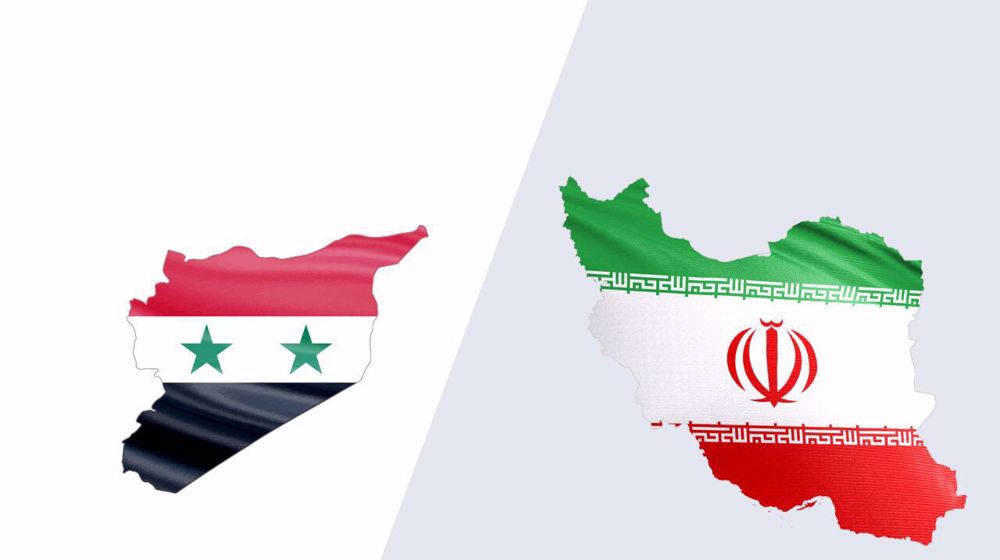

 This makes it easy to access the Press TV website
This makes it easy to access the Press TV website